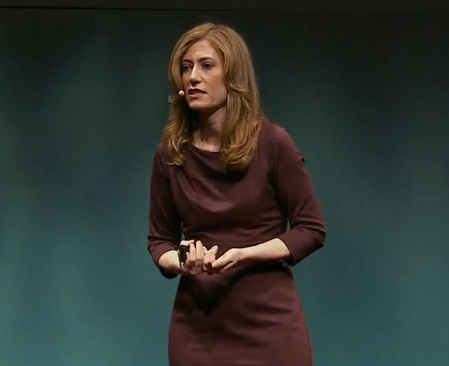The reason for this is the way we make decisions.
是我们做决定的方式导致的这种结果。
Judges have the best intentions when they make these decisions about risk, but they're making them subjectively.
法官怀着善意做出这些有风险的决定,但,是主观的决定。
They're like the baseball scouts 20 years ago who were using their instinct and their experience to try to decide what risk someone poses.
他们就像20年前的棒球侦查员,他们凭本能和经验试着去判断某个人制造的危险。
They're being subjective, and we know what happens with subjective decision making, which is that we are often wrong.
他们是主观的,我们知道主观决策会导致什么,那就是我们常常犯错。
What we need in this space are strong data and analytics.
我们需要的是有力的数据和分析。

What I decided to look for was a strong data and analytic risk assessment tool,
我决定寻找一个有力的数据分析的风险评估工具,
something that would let judges actually understand with a scientific and objective way what the risk was that was posed by someone in front of them.
这个工具会让法官以科学的客观的方式去了解什么样的风险摆在他们面前。
I looked all over the country, and I found that between five and 10 percent of all U.S. jurisdictions actually use any type of risk assessment tool,
我找遍了全国,发现5%至10%的美国管辖区域实际使用了某些类型的风险评估工具,
and when I looked at these tools, I quickly realized why.
我查看了这些评估工具之后,很快意识到其中缘由。
They were unbelievably expensive to administer, they were time-consuming,
它们应用起来非常昂贵,非常耗时,
they were limited to the local jurisdiction in which they'd been created.
它们被限制在地方管辖区域,因为它们就出自那里。
So basically, they couldn't be scaled or transferred to other places.
因此,基本上,它们不能扩展或转移到其他地方。











